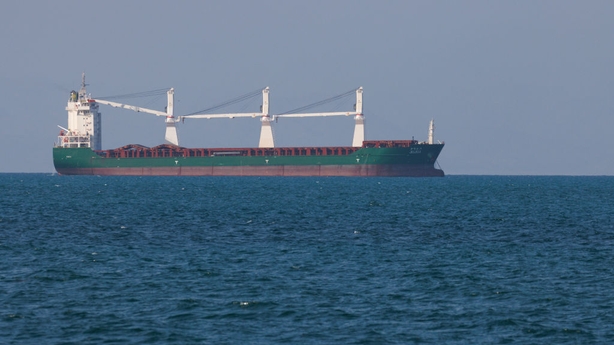The United States launched fresh strikes against Yemen's Houthis on Thursday and President Joe Biden signaled they would keep going until the Iranian-backed rebels stop targeting ships in the Red Sea.
The latest US attacks hit two anti-ship missiles that the Houthis - who say they are acting in solidarity with Palestinians in Gaza - were preparing to fire into the busy shipping corridor, the US military said.
US forces have launched several rounds of air strikes against the Houthis, since an initial barrage by the United States and Britain last Friday, adding to tensions in the Middle East.
Mr Biden, who is seeking re-election in November, admitted that the Western strikes had not yet succeeded in preventing attacks by the Houthis on international shipping.
"When you say 'working, are they stopping the Houthi?' No. Are they going to continue? Yes," Mr Biden told reporters at the White House when asked if the strikes were working.
The White House announced the latest attacks minutes after Mr Biden spoke.
"We did it again this morning, striking at... a couple of anti-ship missiles that we had reason to believe were being prepared for imminent fire into the southern Red Sea," National Security Council spokesman John Kirby told reporters.
The US Central Command (CENTCOM) said the missiles in a Houthi-controlled area of Yemen posed an "imminent threat" to merchant vessels and US Navy ships in the region.
"US forces subsequently struck and destroyed the missiles in self-defense," it said in a statement.
Deputy Pentagon Press Secretary Sabrina Singh told reporters that US Navy warplanes carried out the latest strikes, and said the air raids that began against the Houthis last week have been able to "degrade and severely disrupt and destroy a significant number of their capabilities".
'Not looking for conflict'
On Wednesday, the United States re-designated the Houthis as a "terrorist" group and carried out strikes on 14 Houthi missiles.
Washington says the aim is to reduce the ability of the rebels to carry out missile and drone attacks on international shipping in one of the world's busiest maritime corridors.
The rebels control a swath of war-torn Yemen.
Despite the US and British strikes, the Houthis have continued to hit international shipping, most recently striking a US-owned bulk cargo carrier.
The Western strikes on Yemen have raised fears of a further escalation in tensions in the region following Hamas's 7 October attacks on Israel and Israel's retaliatory offensive in Gaza.
The White House added that "we certainly don't want that to be the case" that strikes on the Houthis carry on indefinitely and further add to tensions in the Middle East.
"We're not looking for a conflict with the Houthis, we're not looking for a conflict in the region," said Mr Kirby.
"But we have to be able to act in our own self-defense, not just for our ships and our sailors but for international shipping in Red Sea."
A senior Yemen official said on Thursday that its military forces need foreign assistance to launch a ground operation against the Houthis that would back the US and UK strikes.
"Ground forces must be supported on the ground, and these forces belong to the legitimate government," Aidarus al-Zubaidi, vice president of the Presidential Leadership Council which unites various anti-Houthi groups, told AFP at the World Economic Forum in Davos.

On Tuesday, the US military said it destroyed four anti-ship missiles in Yemen that posed an imminent threat to military and civilian vessels.
The US and Britain targeted nearly 30 sites in Yemen with more than 150 munitions last week, while US forces later attacked a Houthi radar site in what was described as "a follow-on action" to the previous strikes.
In 2021, Mr Biden's administration removed his predecessor Donald Trump's last-minute designation of the Houthis as both a foreign terrorist organisation and a specially designated global terrorist group.
The removals came in response to fears from aid groups that they would need to pull out of Yemen because they are obliged to deal with the rebels, who effectively are the government in vast areas including the capital Sanaa.
The US decided to use the specially designated global terrorist designation now because it "provides better flexibility to achieve the aims that we have in terms of carving out and safeguarding humanitarian assistance, as well as the broader well-being of the people of Yemen," a senior administration official said.

